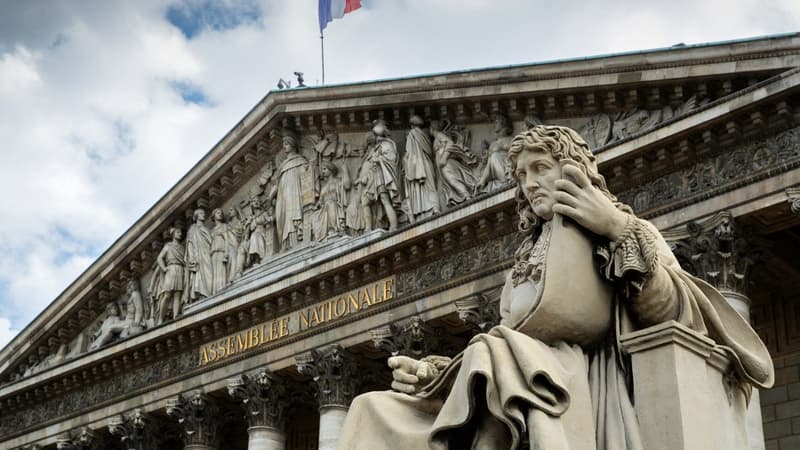The debates on the pension reform will resume this Wednesday in the National Assembly starting at 9 am around the joint joint commission (CMP) while the mobilization in the street continues. In the hands of the latter is a large part of the future of pension reform.
• What is it?
The CMP is the name that designates the meeting between 7 deputies and 7 senators who seek to reach a common version of a bill. It is customary for the National Assembly and the Senate each to vote on one version, with modifications by each chamber. The objective is, therefore, to agree on a single bill.
If so, the CMP is said to be conclusive and the resulting version is transmitted again to the deputies and senators who decide. Only the government can then modify the text. This is currently the most likely scenario for raising the retirement age.
If the parliamentarians cannot reach an agreement, it is classified as inconclusive. On finance laws, only one new reading is scheduled in each of the chambers, before the National Assembly finally has the last word.
• Who composes it?
The deputies and senators that compose it must meet several criteria. The president of the seized commission and the rapporteur of the text are always part of it. You also need to make sure that you represent the political balance within the chambers.
For the pension reform, we will find around the table on the Senate side Catherine Deroche, René-Paul Savary, Philippe Mouiller, the 3 LR and very favorable to the reform, as well as the centrist Élisabeth Doisneau and the macronista Xavier Iacovelli . Only the socialist senators Monique Lubin and Corinne Féret oppose the text.
For the deputies, Fadila Khattabi, Stéphanie Rist and Sylvain Maillard, all Renaissance, will also work on the text with Philippe Vigier (Modem) and Olivier Marleix, president of the LR group in the Assembly. Among the opponents of retiring at 64 are the number 1 of La France insoumise Mathilde Panot and Thomas Ménagé (RN).
In other words, out of 14 parliamentarians, only four of them oppose the reform. Suffice it to say that the casting is very favorable to the government.
• Why is it so scrutinized?
If the CMP takes place for each text studied by Parliament, as required by the Constitution of the Fifth Republic, the pension reform is subject to special scrutiny.
And for good reason: the National Assembly was not able to examine the entire reform and stopped at article 2. Only the Senate, with a LR majority, voted for a version and added the leg: CDI senior, index senior, premium for mothers …
It is now up to the CMP to agree to reach a version that convinces the Assembly. The LR, whose support is essential for the Government, which still hopes not to have to resort to 49.3, will do everything possible so that the text that comes out of this meeting suits them as much as possible.
This meeting is also of considerable importance as the postponement of the legal retirement age is contested by a united trade union front, the left as a whole and the French from poll to poll.
The unions were not wrong: this Wednesday there is a new call for mobilization, a way of putting pressure on the parliamentarians who are members of the CMP.
• Maybe be public?
Boris Vallaud, the head of the socialist deputies, supported by the Nupes, asked on Monday night that the CMP be broadcast live on the site of the National Assembly to be at the height of the “political moment”. Often the subject of negotiations and agreements, so far none have been made public.
Yaël Braun-Pivet indicated the end of the inadmissibility in a letter on Tuesday, pointing a finger at the “rules of procedure”, judging that the institution “cannot free itself from these provisions”. His letter refers to articles of the internal regulations of the Palais-Bourbon … which do not explicitly mention the secrecy of deliberations.
For her part, Mathilde Panot, the president of the LFI deputies, has already promised to “make public the procedures and content” of the CMP in due course, probably through a live tweet and then a press conference. .
Source: BFM TV


